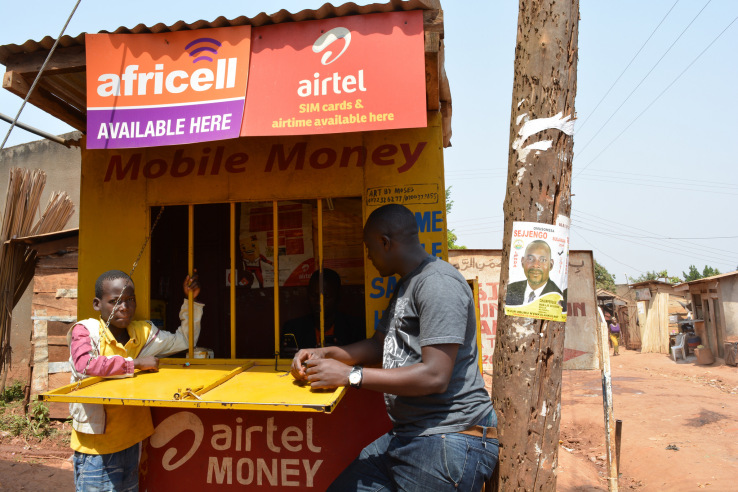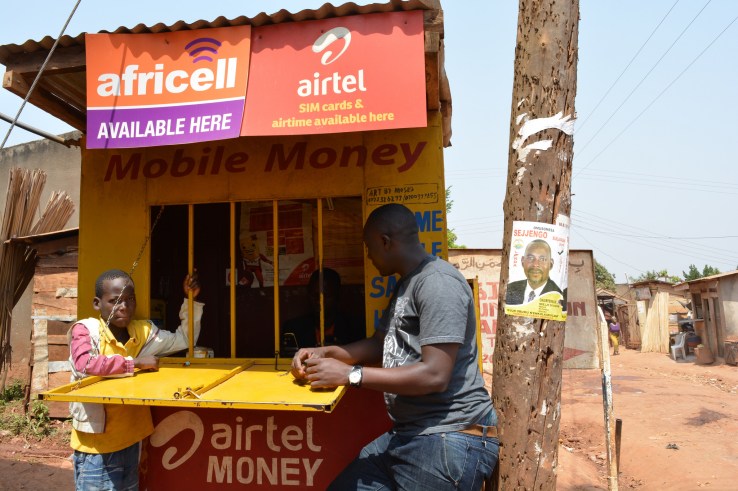

AndroidPay, Google’s wallet for Android devices, is getting a boost in its global profile and functionality today: WorldRemit, the $500 million remittance startup with around 120 million users that lets residents in one country transfer money to family and friends in another, has announced that it will now let people make transfers using Google’s mobile wallet.
This is a first for Android Pay, which up to now has been used for in-app and contactless payments and to make P2P transfers to people in the same country, but never international P2P money transfers.
Google has seen some interesting recent milestones since launching Android Pay in 2015, such as a recent partnership with PayPal, integrating it with Facebook’s Messenger for group payments, and an expanded payment API to boost ubiquity for Android Pay across many more apps and transactional scenarios.
Android Pay today has around 25 million users according to recent Juniper Research estimates, and linking up with WorldPay (and eventually other remittance companies, as this is not an exclusive deal) could give the wallet a much-needed boost, both in terms of user numbers and also transactions.
Remittances were a $442 billion market in 2016, according to World Bank estimates. Only a small part of that runs through new apps like WorldRemit’s and gets terminated in mobile wallets: a significant proportion still runs on legacy rails from the likes of Western Union and MoneyGram, and terminates (that is, the money gets picked up) at physical stores.
But with the explosive growth of smartphones, we’ve seen a corresponding boom in smartphone-based services.
Taking the area of money management, there are still 2 billion people in the developing world who are “unbanked” — that is, without traditional bank accounts — but about half a billion are already using their mobiles as bank accounts (essentially, paying money into and out of their mobile voice and data accounts). So unsurprisingly, remittance companies have spotted an opportunity to move some of the huge market for remittances to mobile.
A large proportion of WorldRemit’s 112 million users are in developing markets, and about 60 percent of its customers are using Android devices, and the company already claims a 74 percent market share of all international remittances going into mobile money accounts, so adding Google’s payment platform was a logical first move when adding the first mobile wallet to its service.
“Mobile mobey is our fastest growing channel,” said Ismail Ahmed, WorldRemit’s CEO in an interview. He also notes that it’s working on adding others like Apple Pay, too.
“We are planning to add Apple Pay as the US becomes a bigger part of our business,” he said in an interview. The company secured its US license in 2014, “and it’s our fastest growing send market today, so yes, Apple Pay is important but clearly android is the bigger market for us right now.” If this catches on, it could see some consolidation of another form: today WorldRemit works with around 30 mobile money services, but there are at least another 260 in use in the market today.
For Google, this could be a way to tap more people who are already Android users but have yet to make the move to activate and use Android Pay.
“We want to make it easier for organisations like WorldRemit to offer a simpler, faster in-app payment solution for their customers,” said Pali Bhat, Director, Product Management at Google, in a statement. “With Android Pay, people will be able to speed through checkout with their Android phones in a few clicks”.
Google’s new role in international remittances comes at an interesting time for the big tech giants and how they have tackled the opportunity to do more business in emerging markets. Remittances has been one area that has been targeted because money transfers has one of the key uses for mobile phones in the developing world.
Recall that Facebook — owner of Messenger, WhatsApp and Instagram — had at one point even considered buying a remittance startup, which should come as no surprise, since one big opportunity for messaging app owners to monetize their apps is to enable payments between people across different countries, who are already using those messaging apps to communicate cheaply with each other.
In the end, it looks like a lot of those app owners are more likely, at least in the first instance, to partner with third parties — although that, too, has had its hiccups.
“Part of the reasoning is the complexity of regulations,” Ahmed said. “Consumers are concerned with who is doing the actual transactions, and it is about getting the balance right. Historically, we had a model where someone would say ‘powered by’ but a lot of regulators in developing markets are not happy with that because then no one understands who is running this, if you have a problem.” But, he continued, “It will be fixed eventually. There is going to be a convergence of messaging and payments, and we are talking to all the leading messaging apps.”
From what we understand, WorldRemit, which has raised just under $148 million in funding from backers that include Accel and TCV, could be raising another round to fuel that next level of growth.
Featured Image: WorldRemit/Flickr UNDER A CC BY-SA 2.0 LICENSE

